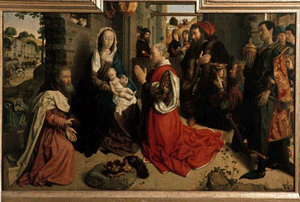
In recent decades historians have excavated an unexplored unit of European history, the Early Modern family. Were families emotionally close in this period? What was the nature of parent/children relationships? Was love a common attribution of marriage?
Scholars like Mary Hartman have argued that the beginning of the Early Modern Europe was a period of moderate familial happiness, which was later met with a backlash of violence and discontent within the family structure. In her book, "The Household and the Making of History," she explains, "Women for their part, emerged as more active if not equal partners with their husbands in decision making within households and also within their local communities…however, it appears at least initially to have produced a strong and sustained reaction featuring a huge rise in popular and institutionalized misogyny." The backlash of violence appears to be a reaction to the minimal female agency that women of this period may have practiced.
Primary sources revealing the nature of the Early Modern family are scarce, so historians often rely on legal documents to discover the household. I am offering a selection of primary sources (legal and personal) that promote the notion that Early Modern German families were happy.
hello... hapi blogging... have a nice day! just visiting here....
ReplyDelete